Next Adventure Loading
Adventures
Introduction
Adventure #1: Identify and Understand the Problem
Adventure #2: Imagining Ideas to Solve the Problem
Adventure #3: Designing an Inventive Solution
Adventure #4: Building the Prototype
Adventure #5: Testing and Revising the Prototype
Adventure #6: Communicating Your Process
Curiosity Creek
Adventure 4:
Building The Prototype
In this adventure, you will learn:
- How to build an invention prototype
- How to find inspiration for ideas in everyday objects in your environment, and
- Ways your inventions can help you
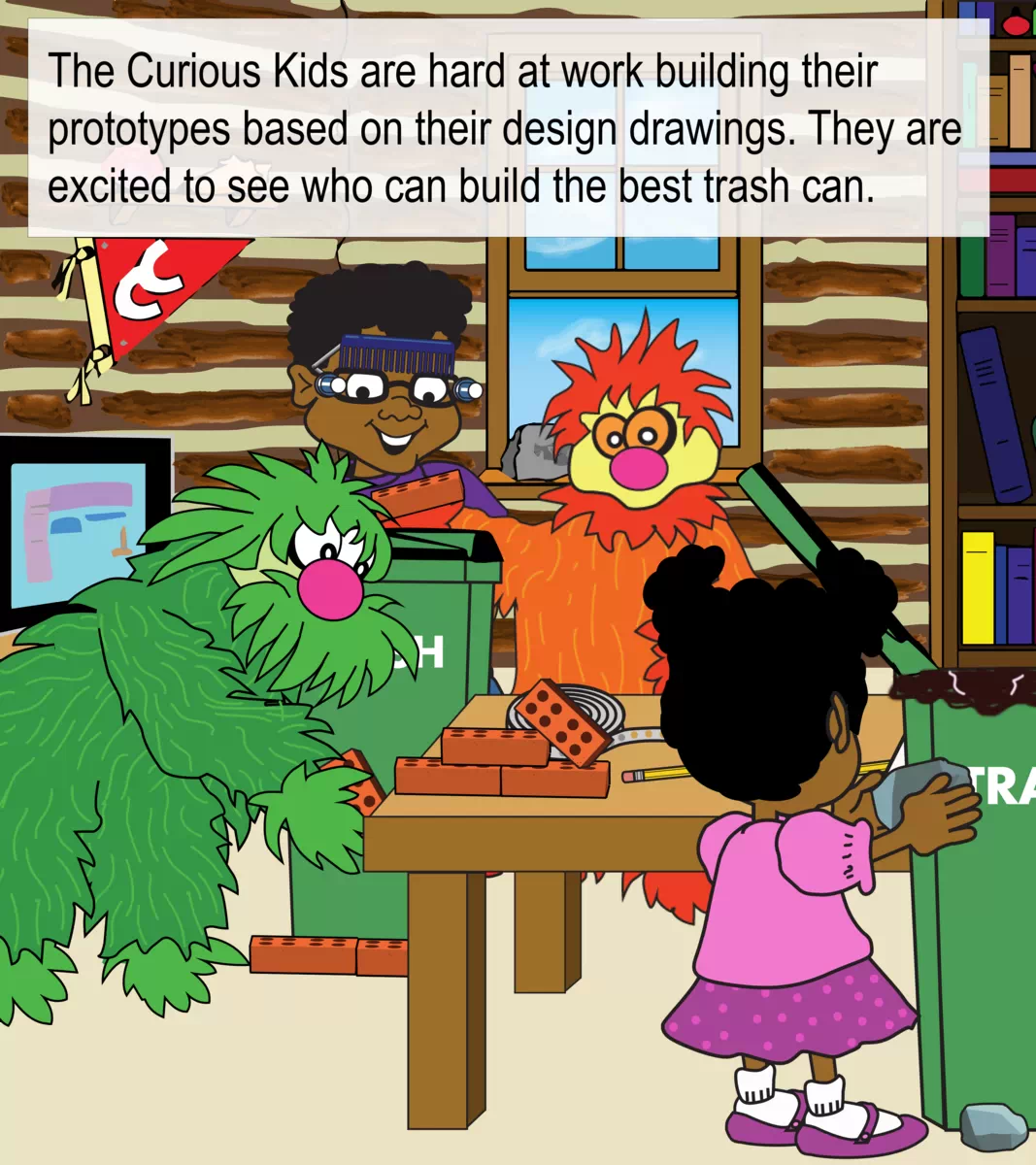
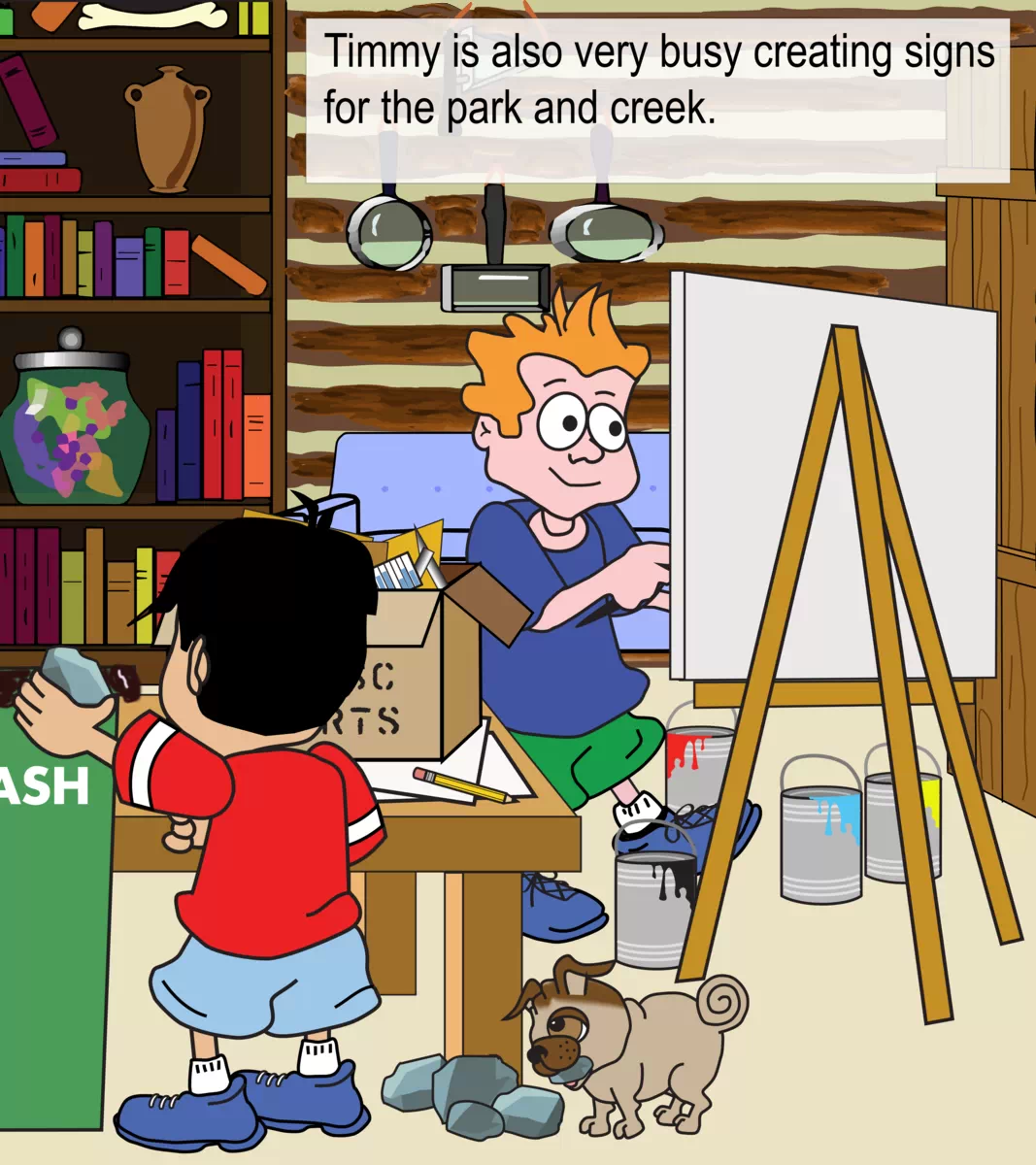
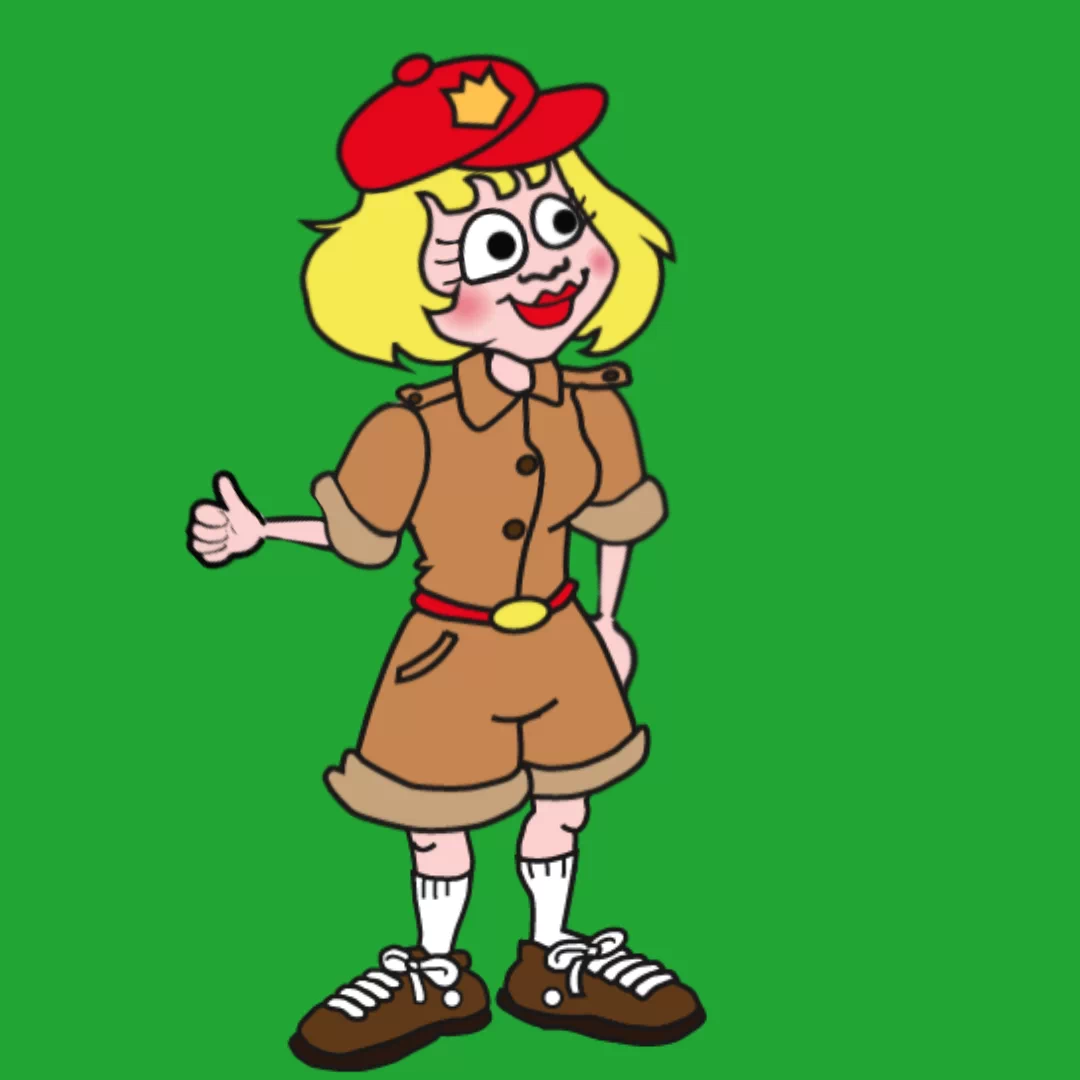
Mimi says to the kids, “Great job working on building your prototypes from your designs! Once these prototypes are built, we will use them in real-life environments at the creek. This is a very special part of the invention process because you get to see your invention come to life!”
“Wow! This IS getting exciting!” says Chen.
Even with a big rock in his mouth, Digger excitedly barks in agreement, “WOOF-YEAH!”
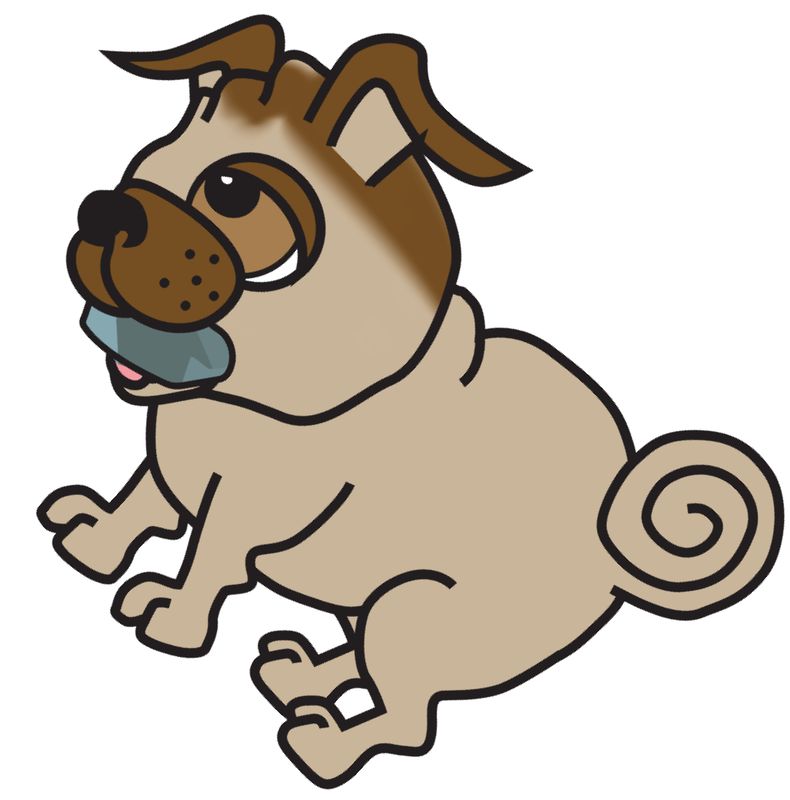
Mimi says, “Remember, whenever you have questions, feel like you’re stuck, or would like some guidance, your invention mentor is your go-to person to ask!
People with some invention experience, like Mac or Hector or me, are available to help you as invention mentors.
Or, maybe someone like a parent or a grandparent or an expert in your community can help you, too.”
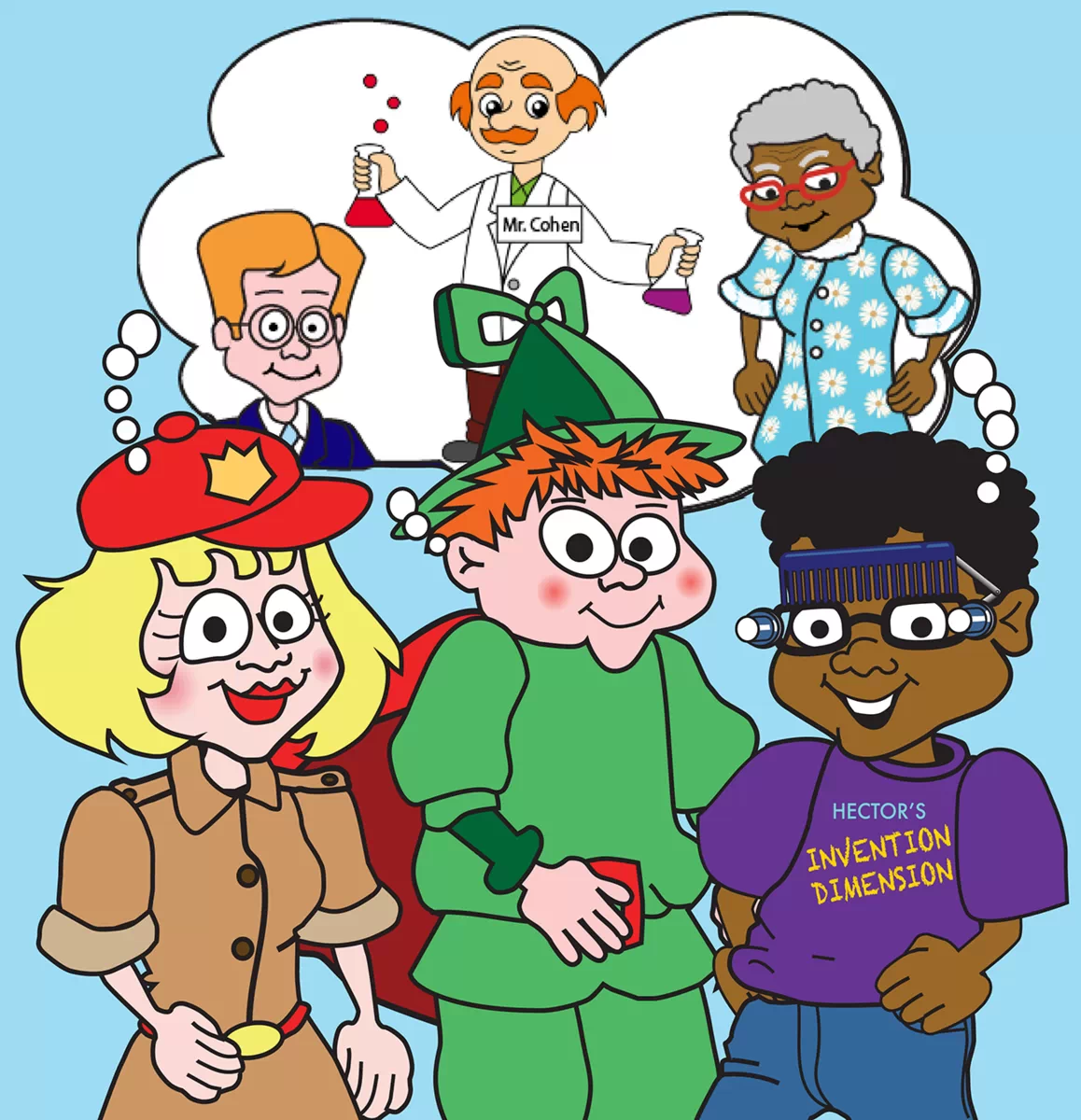
Timmy answers, “My dad liked my ideas for the signs and helped me explore what materials I could use for them so the message on each sign didn’t wash away if it rained. He also showed me how to use the Internet to find the town ordinance online that says how big signs can be because he thought my prototypes were too big. He was right!
I’m almost finished creating both signs. I think I know where to put the park sign… but I’m a little unsure about the best spot for the sign at the creek. Maybe Hector can 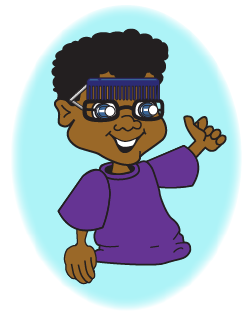 be my inventor mentor today and help me figure this out.”
be my inventor mentor today and help me figure this out.”
Hector nods with a big smile on his face, “Yes I’d love to be your inventor mentor, Timmy!”
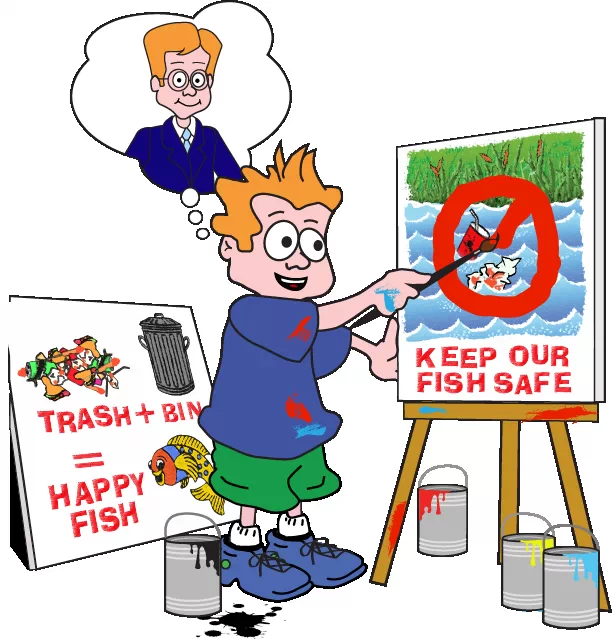
Even Hector has some things to think about.
"Our invention team has some questions about the types of animals that live around the creek, and how strong they are. We’re a little stuck on how heavy to make our trash can’s base so that it can’t be tipped over by any of the animals, especially the bears,” says Hector.
Others have questions, too!
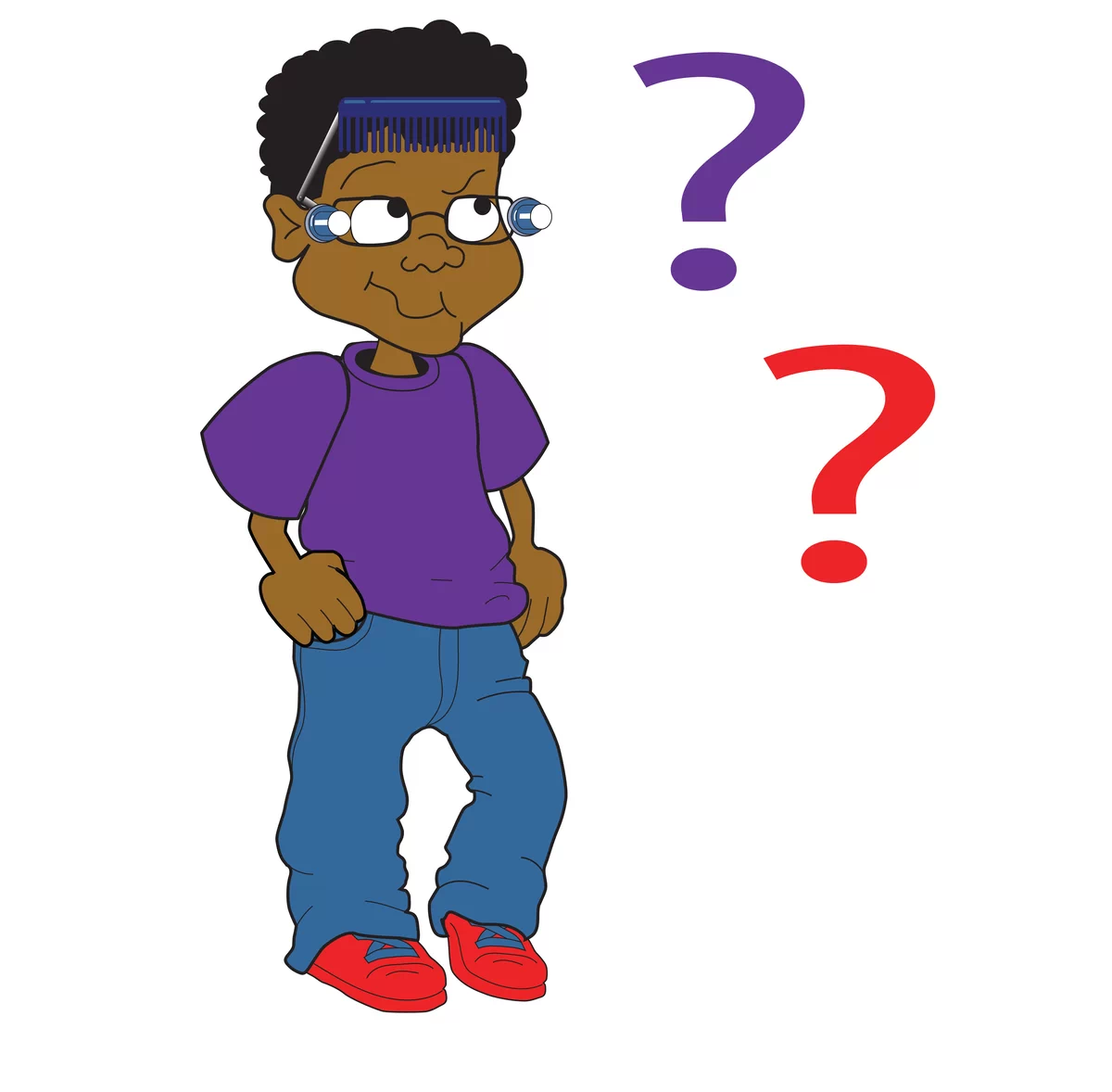
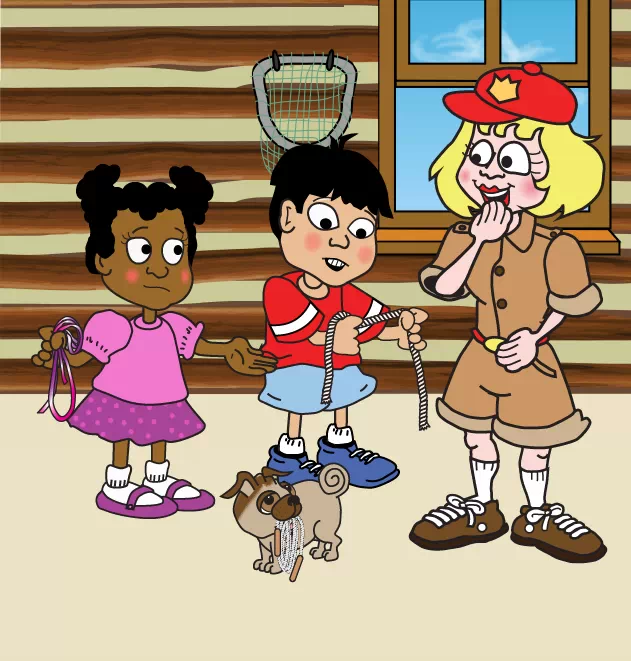
“Yeah, our team has a lockable lid idea we’re excited about. But we don’t know how strong the ropes need to be to keep the animals, like the raccoons and bears, out of the trash bin!” says Tanisha.
Mimi says, “These are all great questions and important parts of your inventions that you have all identified successfully! Let’s dive into some of these challenges together.”
Meanwhile, Timmy is hunched over a big photo of the Creek area, laid out on the table. His pointer finger is scanning over the different parts of the image as he mumbles to himself. Hector walks over to see if Timmy could use some help. Hector says, “Hi Timmy! You mentioned earlier that you’re a little unsure about the best spot for the sign at the creek. How is that going so far?”
Timmy says, “Yeah! My dad and I went to the Creek to check out the area in person and identify some great spots to put the signs. Here’s the photo he captured of the Creek area.”
Timmy points to the big photo sprawled out in front of him.
He's thought about a couple of locations to put the signs, but he tells Hector that he could use some help figuring out which ones are the best ones.
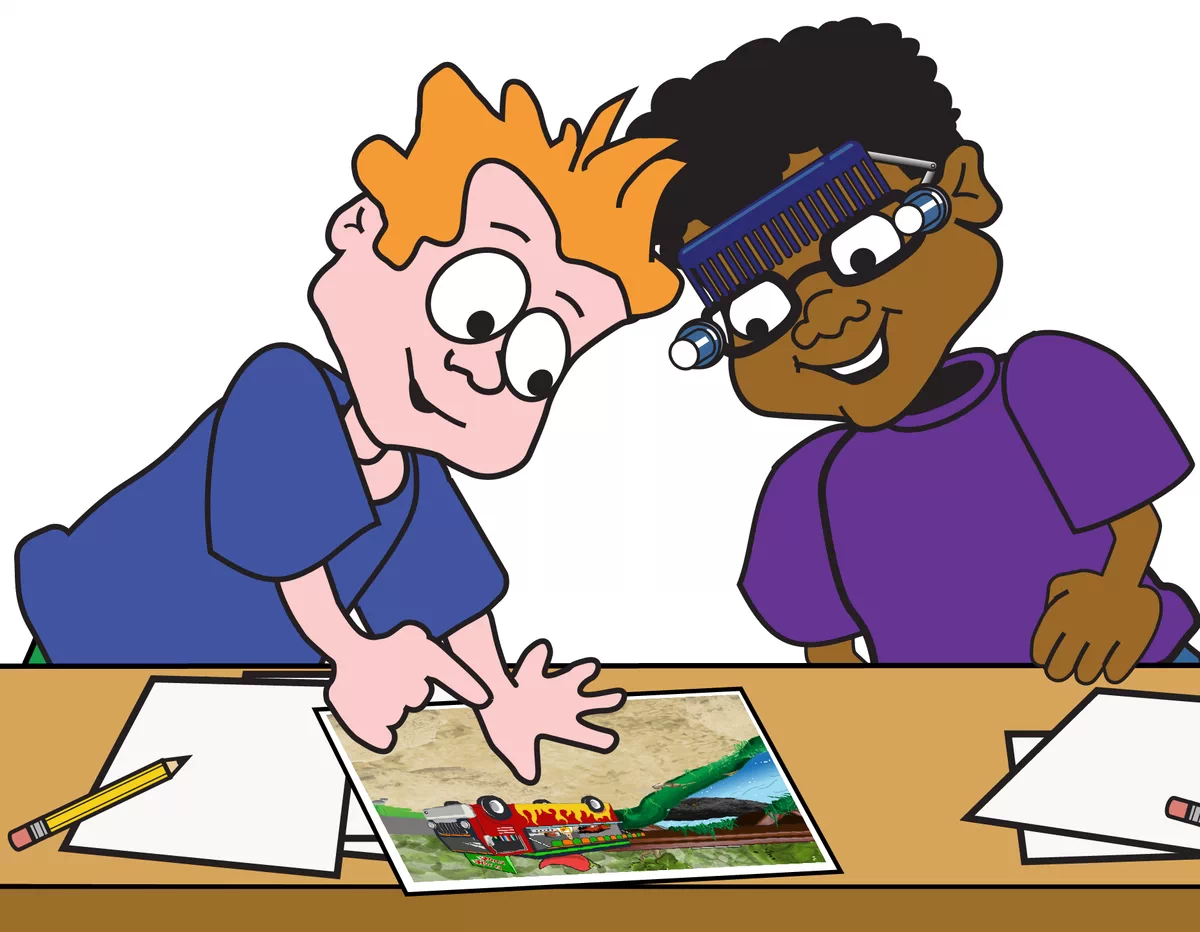
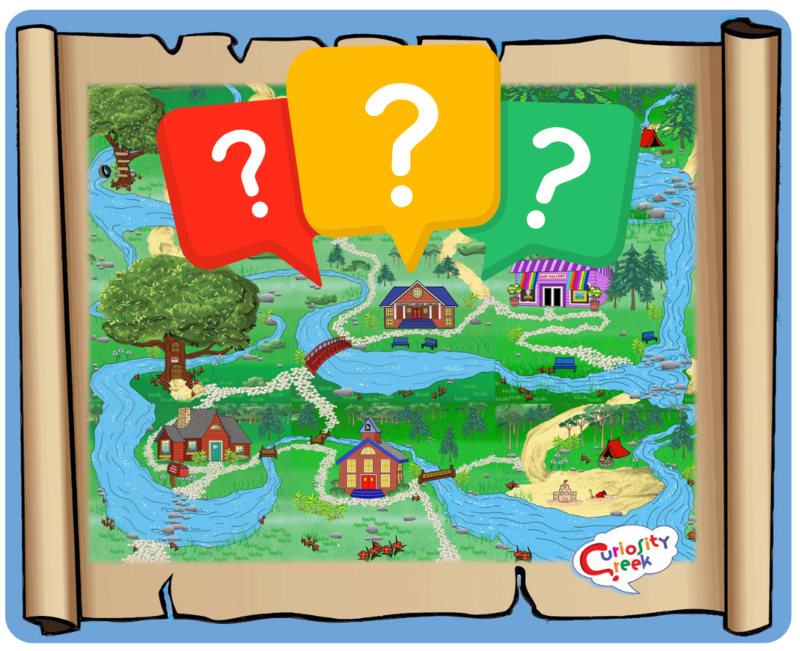
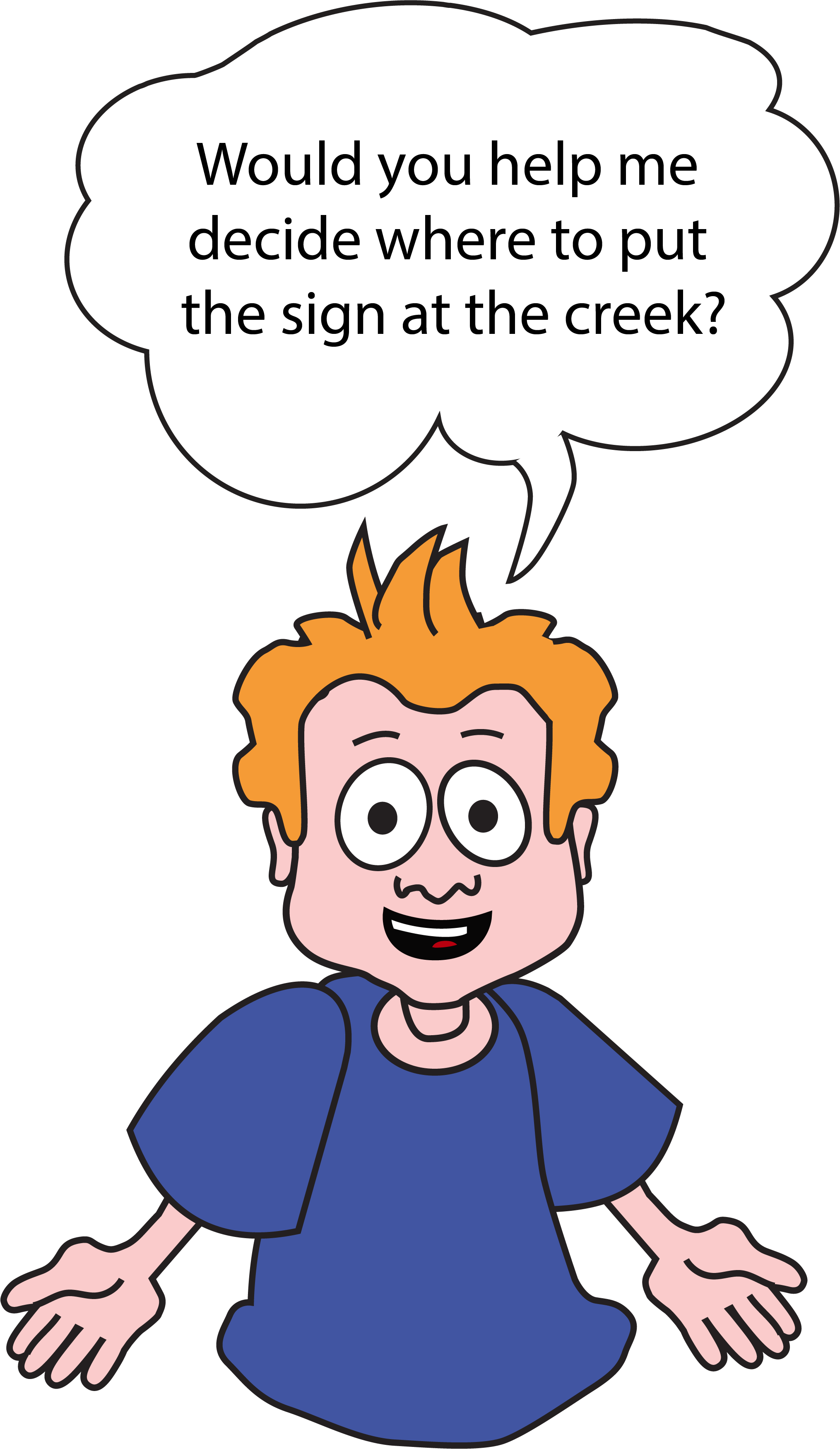
START GAME
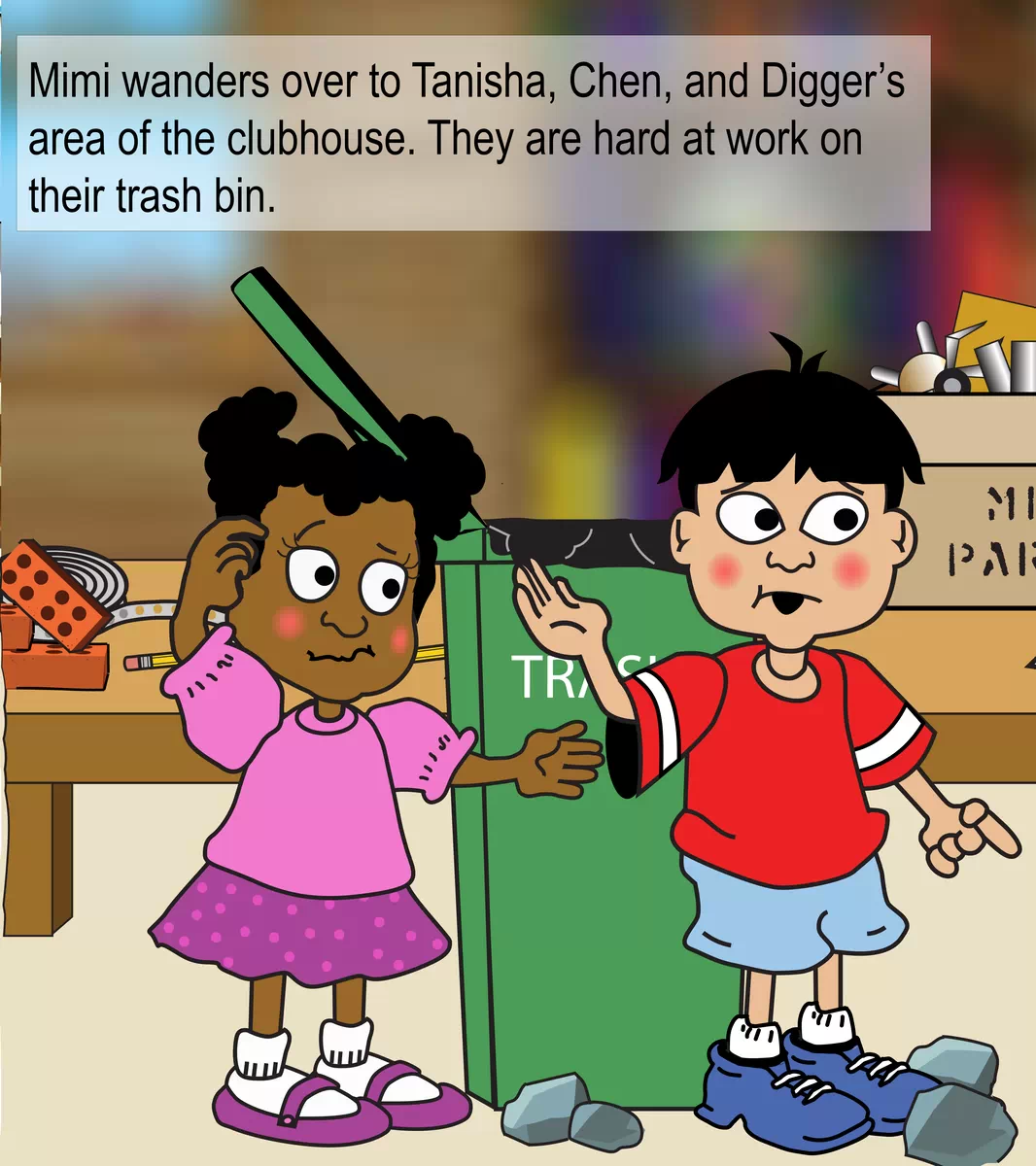
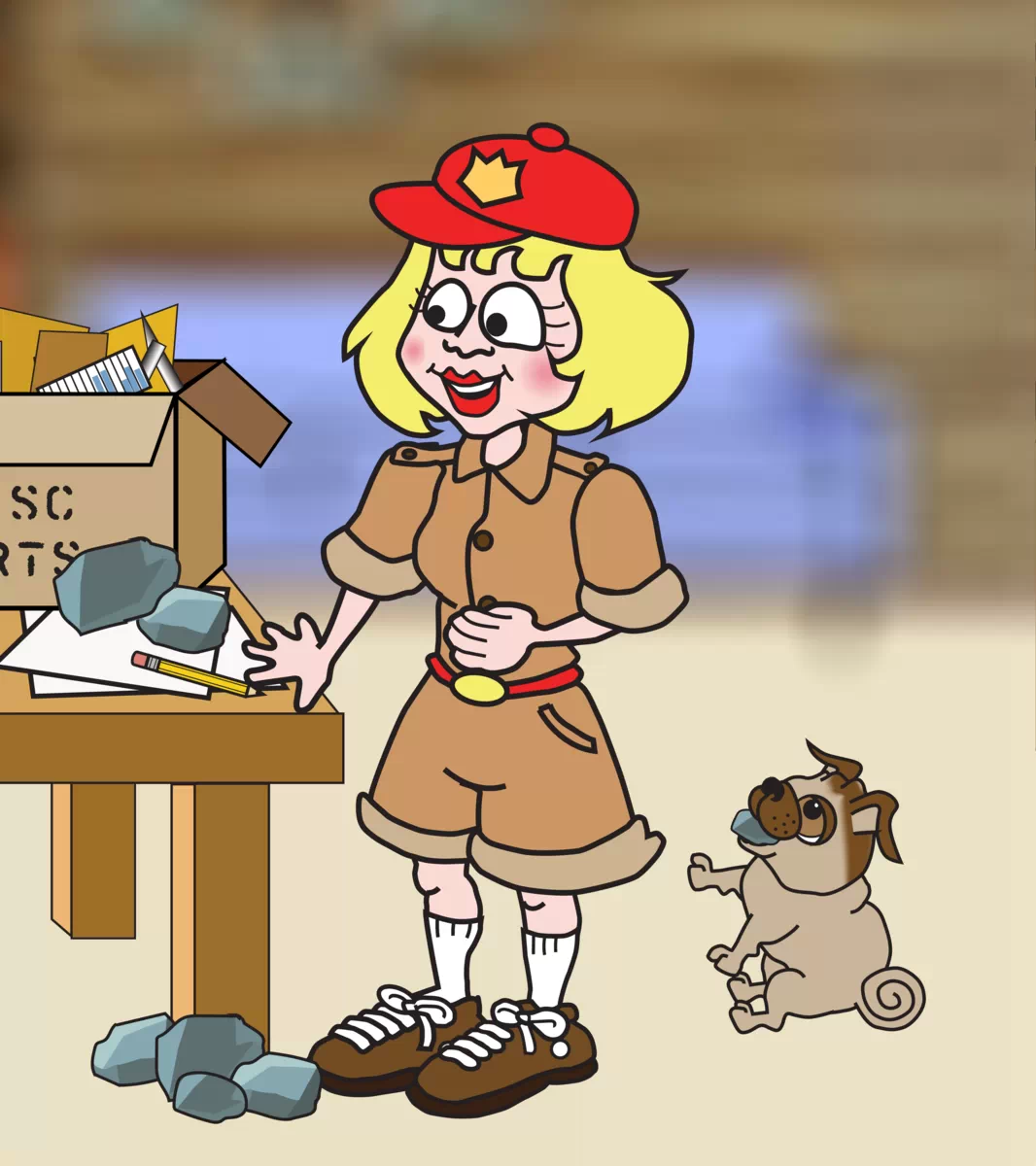
“Mimi, we’re so glad you’re here. We’re a little stuck, and we thought you might be able to help us,” says Chen.
Tanisha adds, “Yes, we have this huge pile of rocks that we collected, but we have no idea how many of them to place in the bottom of the bin. We need help knowing how heavy this bin needs to be. How strong are the biggest animals in Curiosity Creek?”
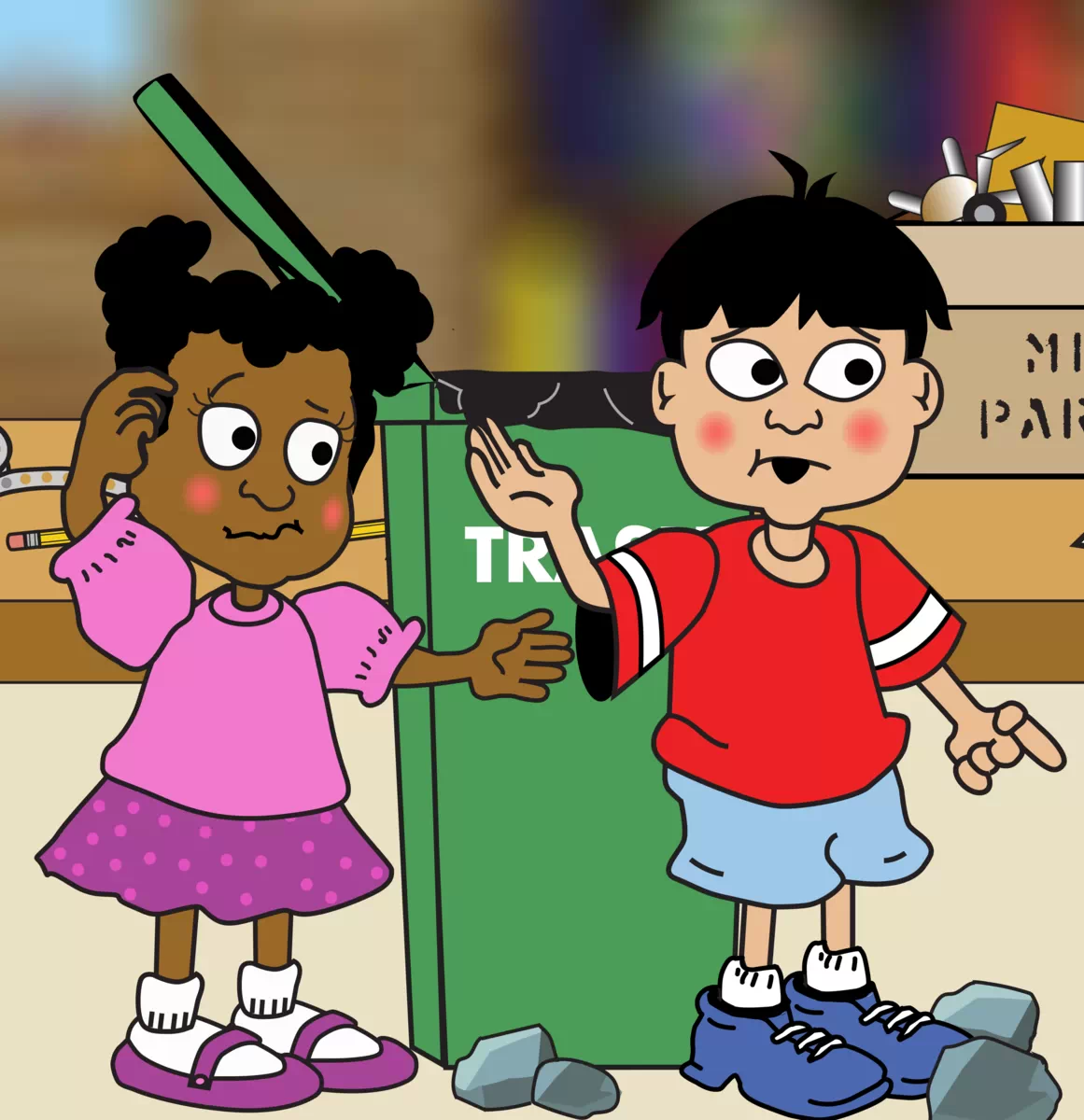
Chen asks, “Are they bigger and stronger than Tanisha or than I am? Can they pick up cars? Or grand pianos? Or… washing machines? Or…?”
Everyone giggles at the thought of bears lifting up big heavy objects over their heads.
Mimi says, “Excellent question! As an environmental expert in Curiosity Creek, I can help you by sharing some information about the wildlife around the creek. While there are a few bears around that could knock over the trash bins, the animals that most love scurrying through the trash are the raccoons. Most raccoons in our area can lift objects that weigh up to 62 pounds, so if your trash can’s heavy base is at least 63 pounds, it should work.”
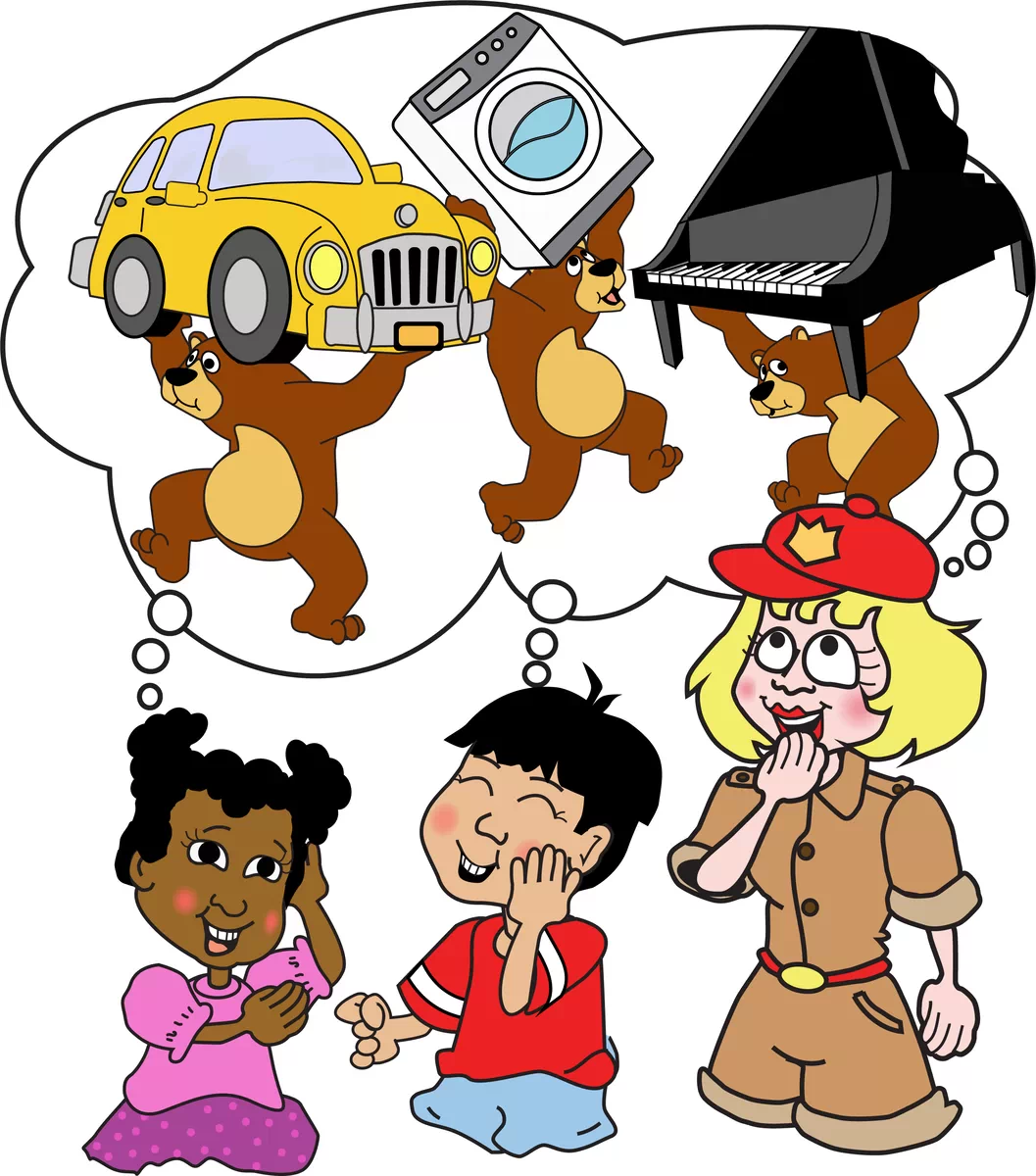
Chen nods excitedly. “Wow, raccoons are really strong! Thanks for that helpful information. So, our next step is to figure out how many rocks we need that equal 63 pounds in weight. But… how will we figure that out?”
A sprinkle of pixie dust begins to form and a distant, twinkling sound begins to grow louder. Suddenly… POOF! Teenie Genie has come to visit the Curious Kids again.
Challenge #2:
Weighing Heavy Objects
Your goal in this challenge is to balance the weights on the scale by placing just the right number of rocks on the right-hand side of the platform that weigh exactly 63 pounds. The rocks have different weights, so you have to choose just the right number of each size rock. Once the scale is balanced, each side will weigh 63 pounds, and you will have successfully completed the challenge.

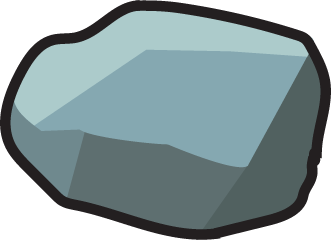
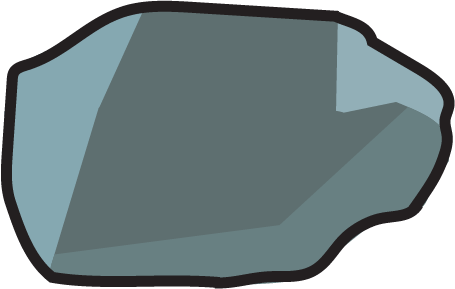
When you're ready to begin, click the Start button!
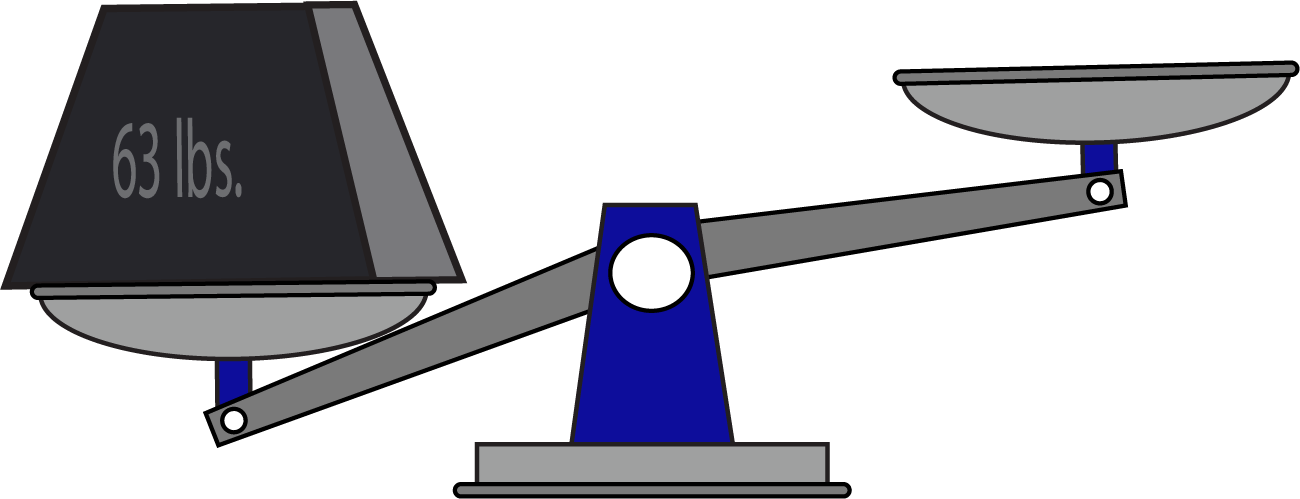
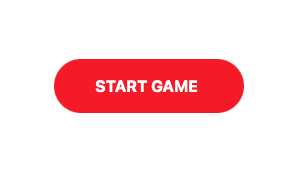
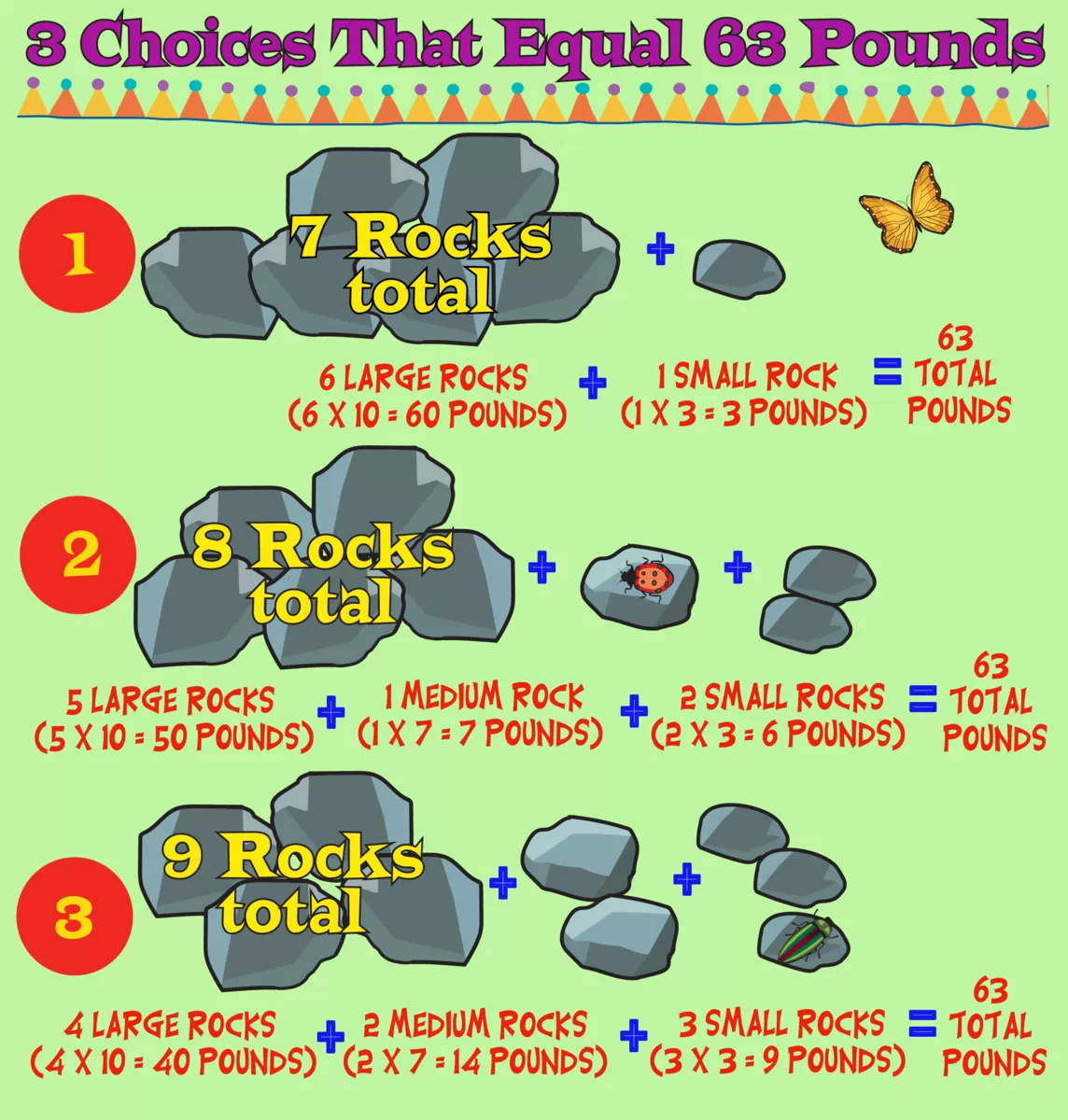
That certainly was a hard challenge and you figured out a solution. I’m (Mimi) SO proud of you! You can now see the three choices that equal 63 pounds!
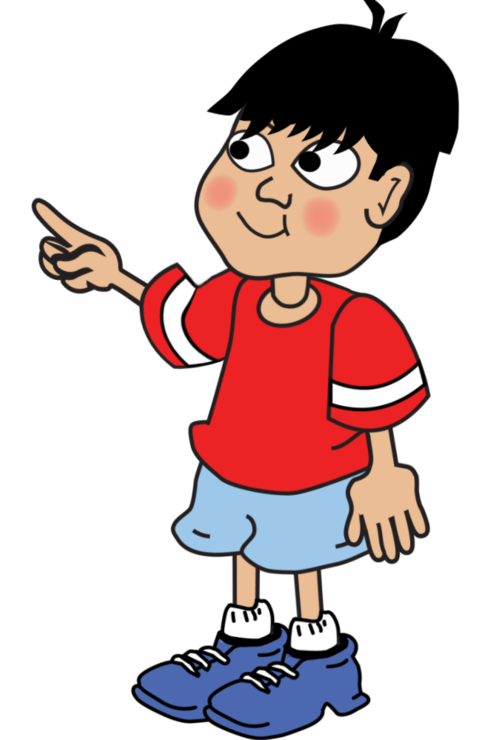 Chen says, “And we decided on Choice #1. It has the fewest number of rocks, so we think it will be easier to fit them into the bottom of the bin.”
Chen says, “And we decided on Choice #1. It has the fewest number of rocks, so we think it will be easier to fit them into the bottom of the bin.”
Great job completing this challenge! Tanisha, Chen and Digger are now able to create the heavy base for their trash bin. Now, let’s go and see what the other group is up to.
Mimi walks over to check in on Hector's team. "How are you doing on your prototype? Do you need any help?” Mimi asks the group.
Hector explains, "We have our trash bin design created, and you told us that the weights need to equal at least 63 pounds. We are going to use small bricks around the bottom of our trash bin to create our heavy base. Each brick weighs 2 pounds. So, Muff figured out that we need 32 bricks to be enough weight. Thirty-two bricks X 2 pounds each = 64 pounds which is one pound more than we need! We also used some strong glue to keep the bricks in place. Thanks, but I think we’ve got this!"
Mimi replies, “OK. Great!”
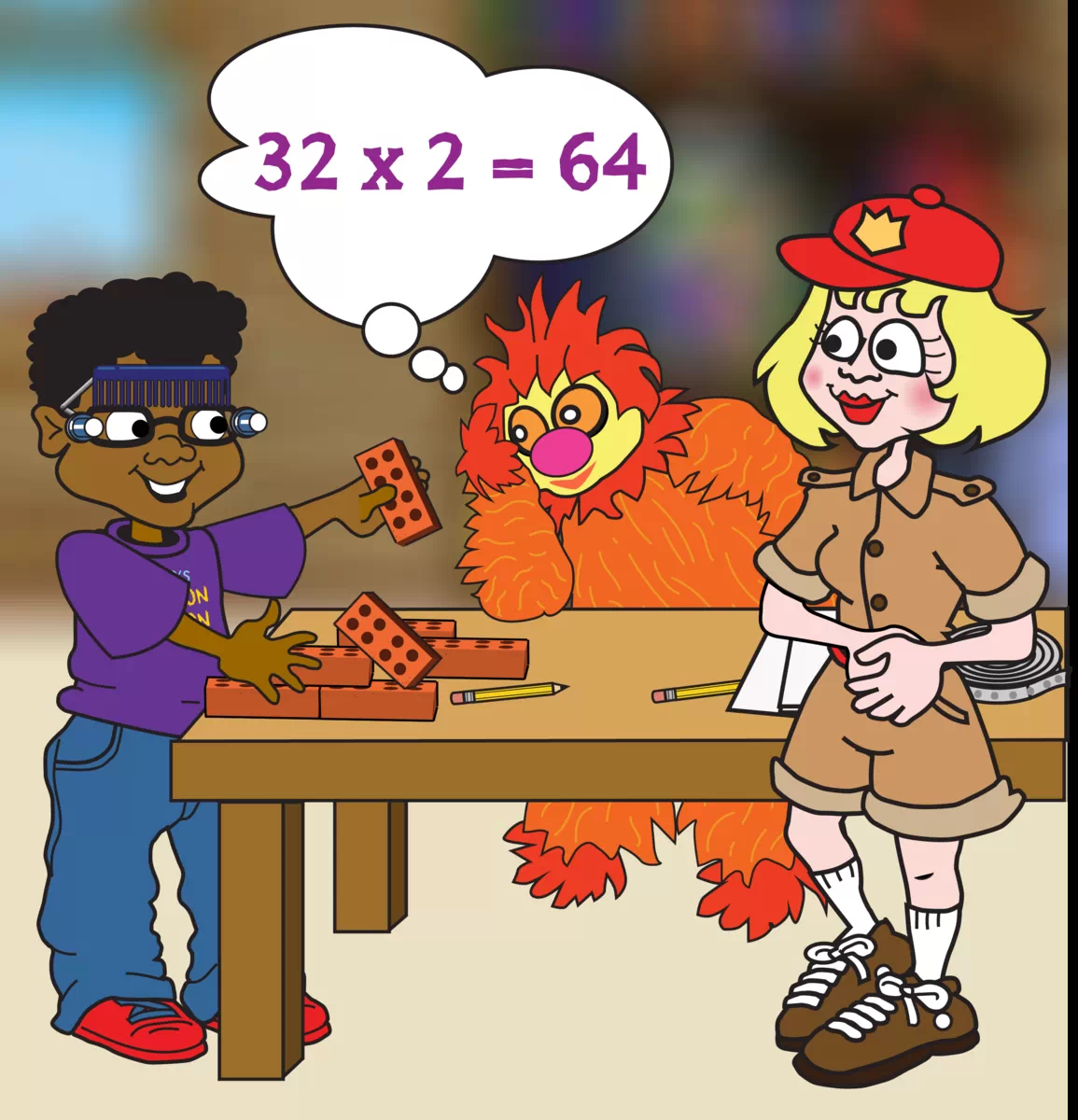
Mimi is about to leave the clubhouse when Chen and Digger, led by Tanisha, come over to say something to her. Tanisha looks worried and sad.
Mimi asks, “Is something wrong, Tanisha?”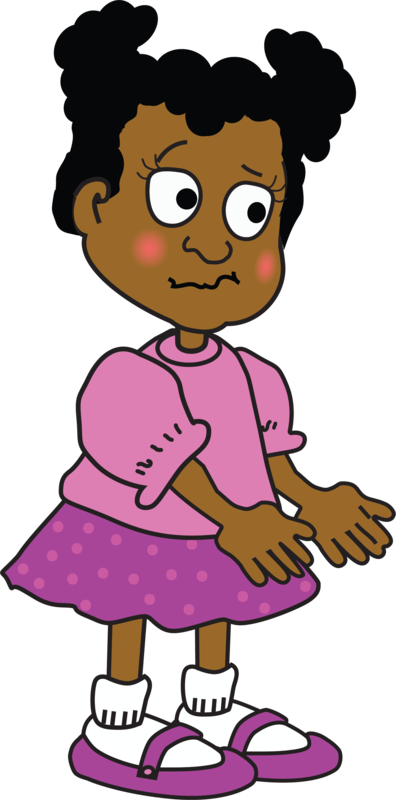 Tanisha replies, “Thank you for your help figuring out how to make the bin untippable, Mimi. As you know, it was my idea to create a way to lock the lid of the bin, too, so that animals couldn’t just open it and scatter what is inside. We decided on rope so anyone could secure the lid without a key. But, when I talked it over with my team, we weren’t sure what kind of rope to use make the bin’s lid lockable. This is what our design looks like. But now we’re not sure we are using strong enough rope.”
Tanisha replies, “Thank you for your help figuring out how to make the bin untippable, Mimi. As you know, it was my idea to create a way to lock the lid of the bin, too, so that animals couldn’t just open it and scatter what is inside. We decided on rope so anyone could secure the lid without a key. But, when I talked it over with my team, we weren’t sure what kind of rope to use make the bin’s lid lockable. This is what our design looks like. But now we’re not sure we are using strong enough rope.”
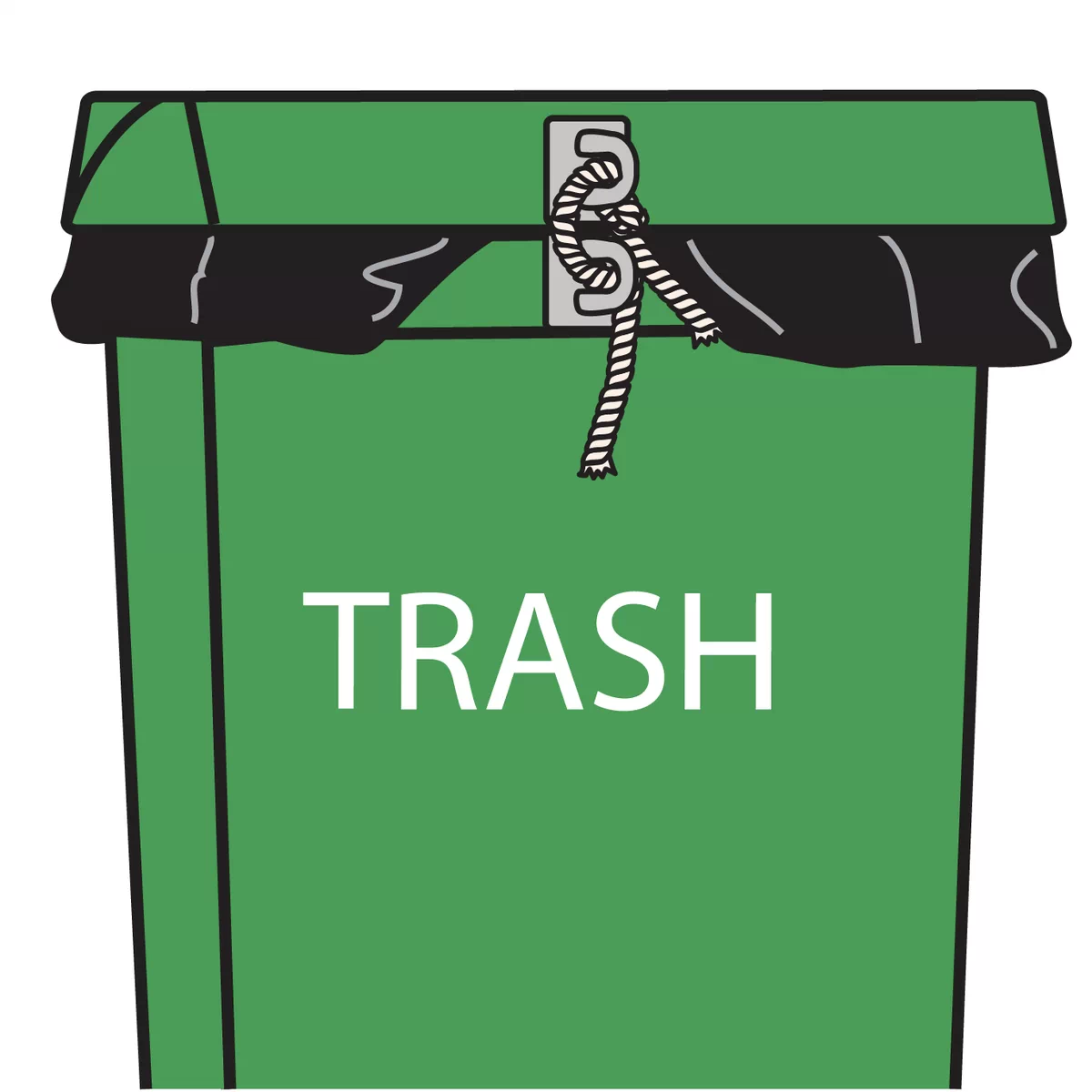
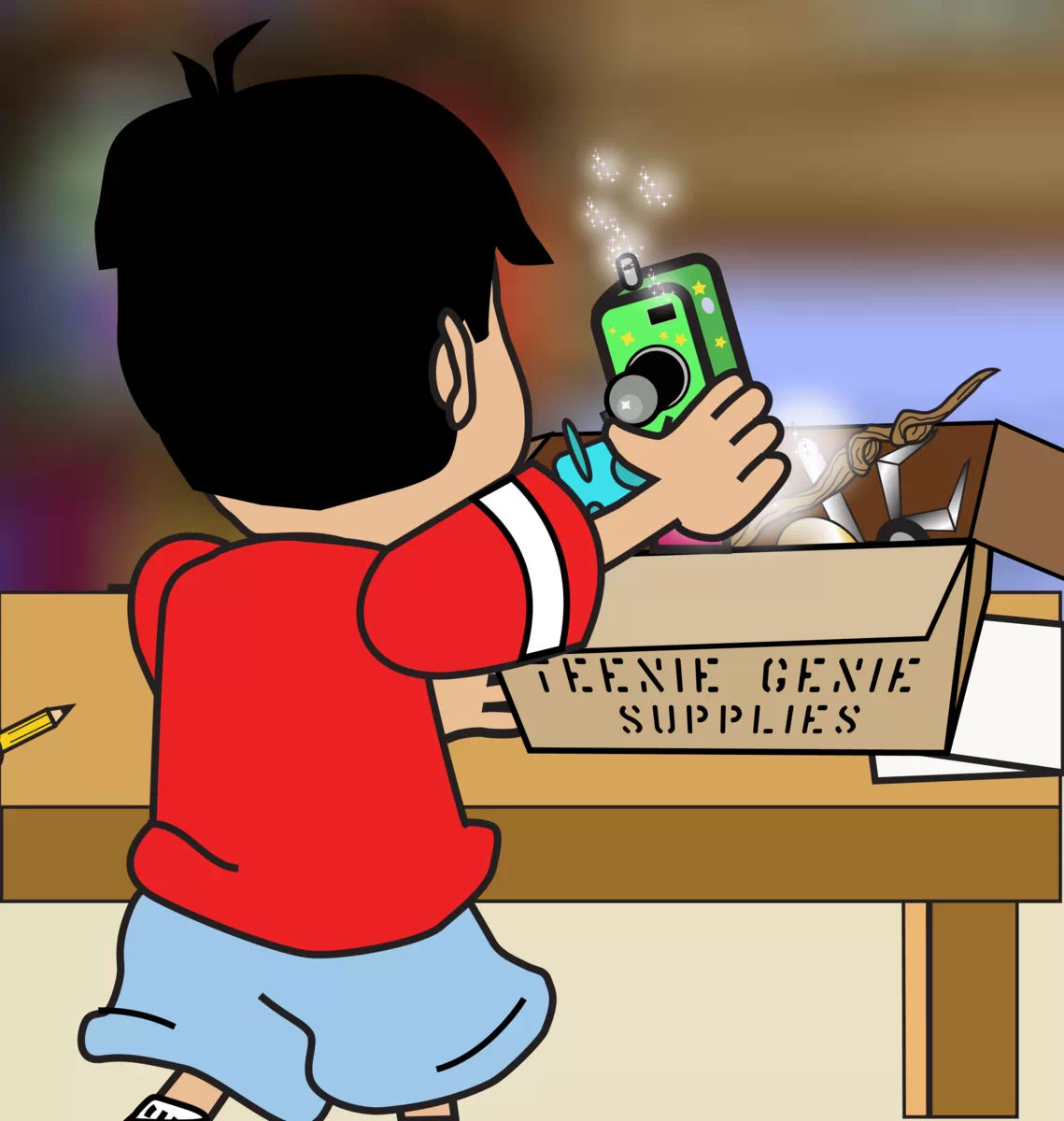
Mimi calms them by saying, “No worries. As your mentor, I’m sure we can figure this out, together."
Mimi continues, “Often, we can look around us at our everyday environment for inspiration whenever we get stuck. How about we collect some rope-like objects around Curiosity Creek for ideas?”
Chen says, “Oooh, I like that idea. Maybe we can use the special camera from Teenie Genie that we used before. Then, we can take photos of our ideas for rope-like objects we find around Curiosity Creek!”
Chen digs into the box of Teenie Genie supplies and pulls out the magic camera.
Mimi says “YES, let’s do it!”
Challenge #3:
The Search for Rope

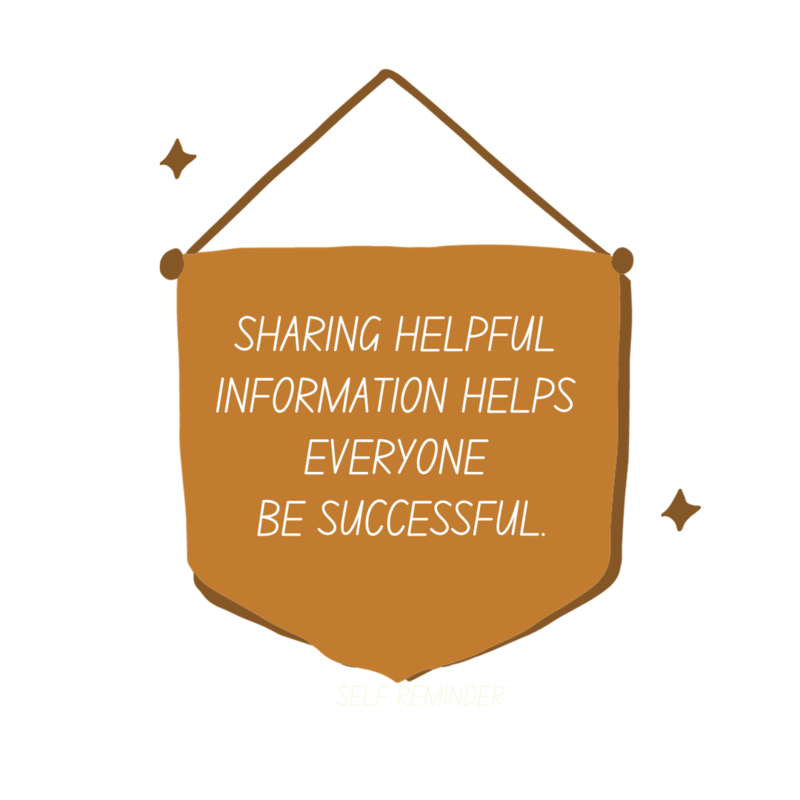
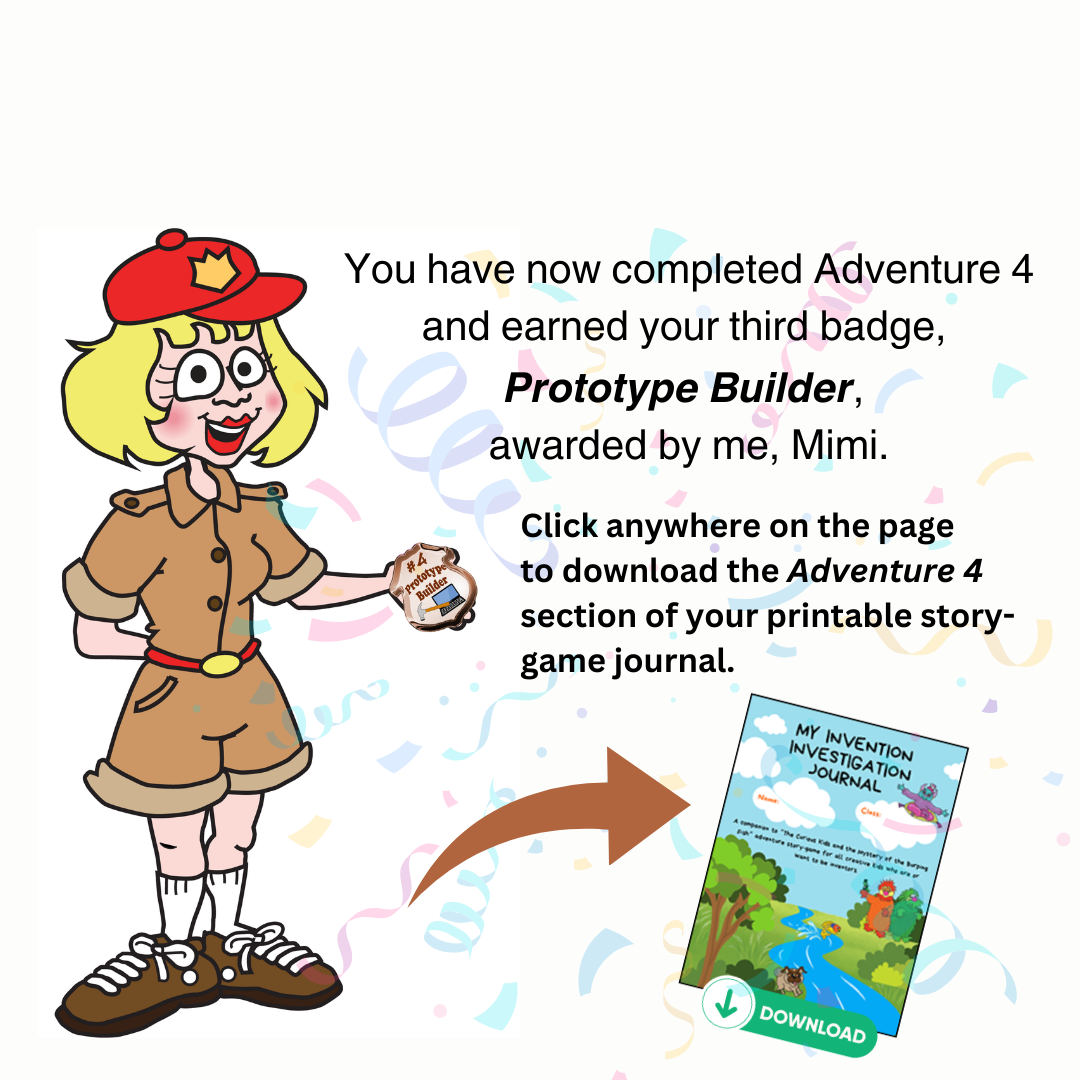
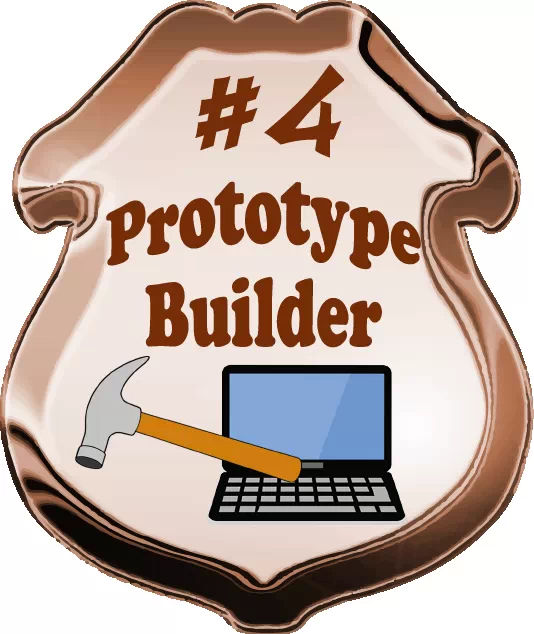
 Digger’s Great Green Glossary
Digger’s Great Green Glossary